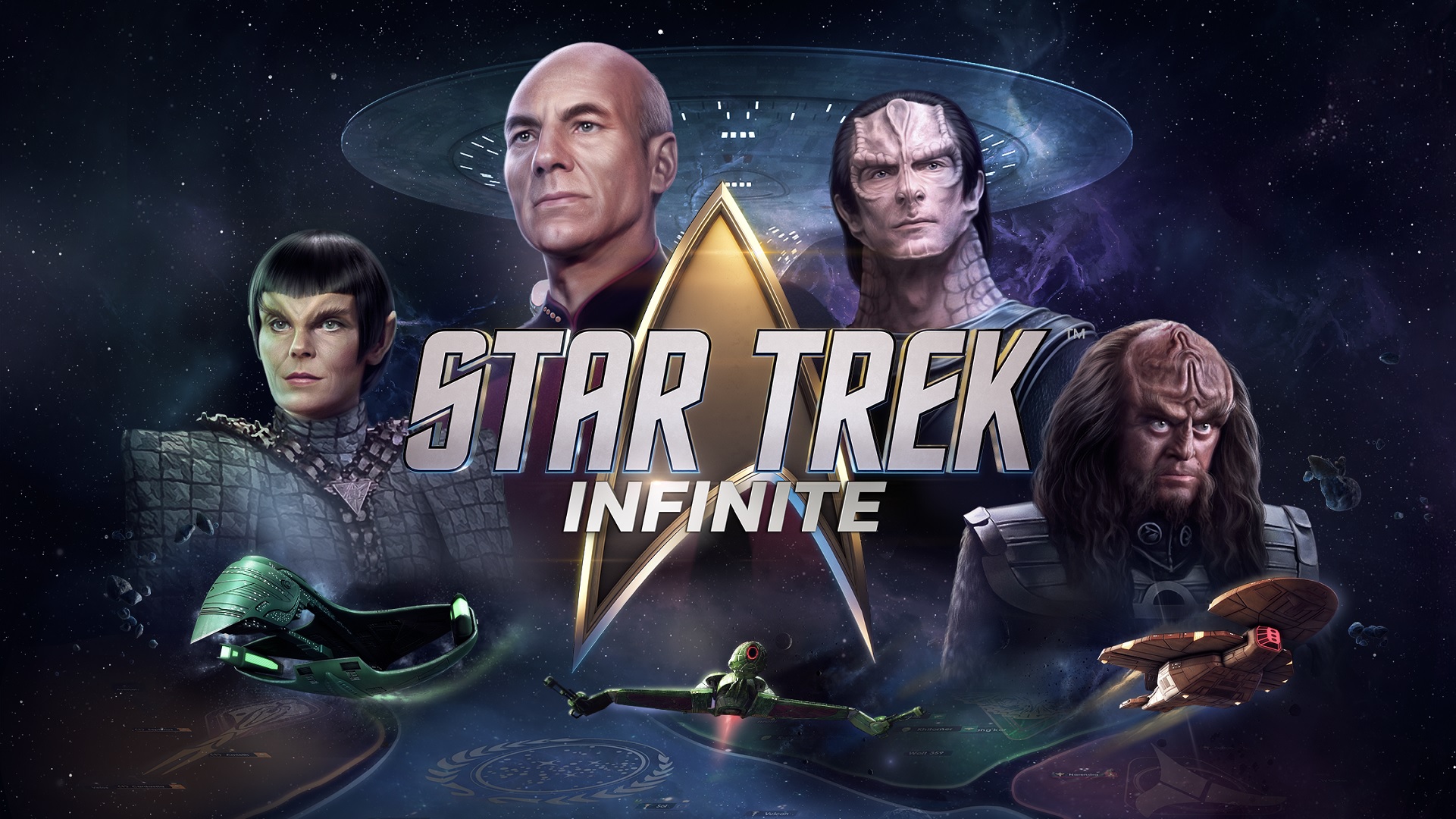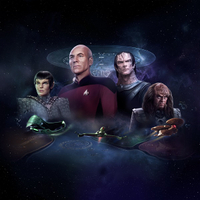Windows Central Verdict
Star Trek: Infinite is a fun strategy game and a great entry point to the genre for newcomers that doesn't cost as much as many big games, but a plethora of bugs bog down the gameplay and mission design.
Pros
- +
Fun management gameplay mechanics
- +
Good grand strategy entry point
- +
Low price
Cons
- -
Large number of bugs
- -
Obtuse mission design
Why you can trust Windows Central
Have you ever watched situations unfold in Star Trek and thought "If only I had been in charge?"
Star Trek: Infinite puts that idea to the test, allowing players to revisit a large chunk of Star Trek history in a grand strategy format by guiding different civilizations through force or peace. It has solid ideas and fun empire management mechanics, as well as a lower than usual price point.
Unfortunately, a large number of bugs bring down the overall experience, causing serious issues for when you try to complete missions or scale production lines across your controlled worlds. There's fun to be had, but Star Trek: Infinite needs a few big fixes before it could become a must-play.
Disclaimer: This review was made possible by a review code provided by Paradox Interactive. The publisher did not see the contents of this review before publishing.
What is Star Trek: Infinite?
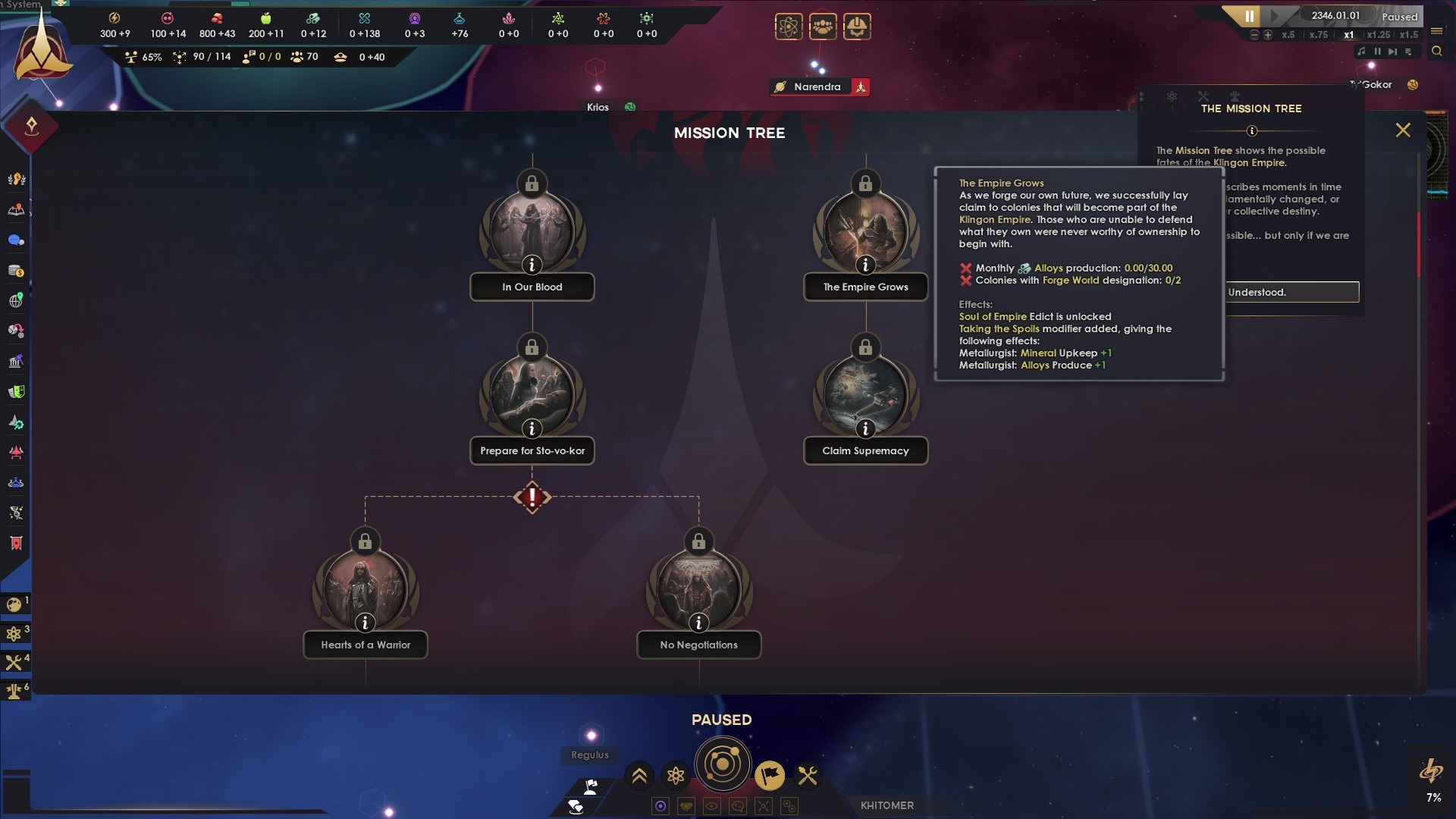
Developer: Nimble Giant Entertainment
Publisher: Paradox Interactive
Genre: Grand strategy
Playtime: 15+ hours
Platforms: Windows PC
Reviewed on: Windows PC
Install size: 15.14GB
Xbox Game Pass: No
Price: $30
Release date: Oct. 12, 2023
Star Trek: Infinite is a grand strategy game developed by Nimble Giant Entertainment and published by Paradox Interactive. Players assume control of one of four powerful factions in the Star Trek universe — the Federation, Klingon Empire, Romulan Star Empire, and Cardassian Union are all available — and guide their chosen faction through history.
You'll build fleets and starbases, colonize worlds, manage populations, and through force or diplomacy, eventually integrate weaker civilizations and smaller factions into your space-faring kingdom. Naturally, each faction has advantages and disadvantages, with the Federation encouraged to peacefully approach new cultures and act defensively. Meanwhile, the Cardassians may take a more unsubtle approach in acquiring new pre-populated worlds. All of this requires managing dozens of resources in a careful balancing act.
Star Trek: Infinite
This is a solid entry-level strategy game that fulfills dreams of controlling the Federation or other Star Trek space empires. Just be mindful of some bugs right now at launch.
Buy at: Humble Bundle | Steam
Star Trek: Infinite — Gameplay and customization
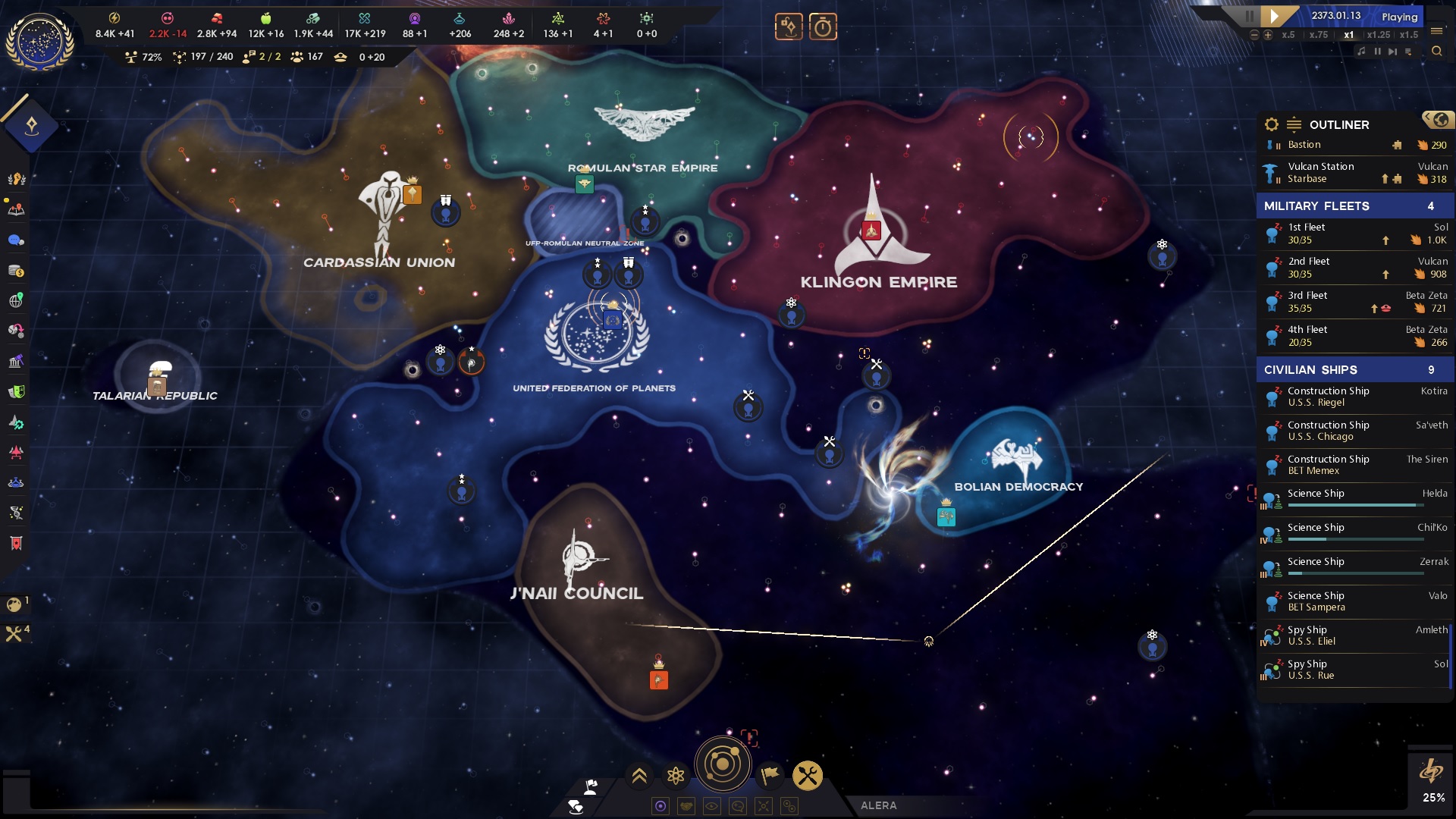
No matter who you're playing as, you must balance resource consumption with the growth of your empire, surveying solar systems and colonizing worlds to keep your population from getting too cramped.
I appreciate the game's structure here, as it simplifies a tremendous amount of information, offering multiple ways of automating your output. For example, you can designate a planet to be a Mining World and let the game AI choose the best ways to improve it over time. It's a good balance, providing minute details to tweak for veteran players like me without being too overwhelming for newcomers.
As mentioned above, each faction in Star Trek: Infinite has some unique qualities that allow you to play in different fashions, but you've still got options no matter who you've chosen. This ties in with the Mission Tree, which can allow you to take the Star Trek timeline down different avenues, exploring things that did happen or might've happened in other circumstances.
You could eventually build the Federation in such a way that it becomes a more militarized entity.
For example, you could eventually build the Federation in such a way that it becomes a more militarized entity, leading to offensive campaigns that bring peace to the galaxy... by force. It's a shame then that the Mission Tree is designed in an obtuse fashion. There's a large number of events that appear from time to time with absolutely no details on how you're actually supposed to proceed, leading to frustration as you have to hunt through the Mission Tree for any clue that something could be connected to a timed event that's popped up.
Unfortunately, there's also an absolutely massive amount of bugs right now. Some of these are fairly minor issues, such as needing to reselect a ship before it could be ordered to move. Others are far more massive, such as hearing the AI advisor say one of your characters has died without telling you who it is, suddenly losing the ability to move a fleet that's somehow become stuck in a system, or even (perhaps most egregiously) being unable to finish a mission despite filling every requirement.
Star Trek: Infinite — Visuals and audio
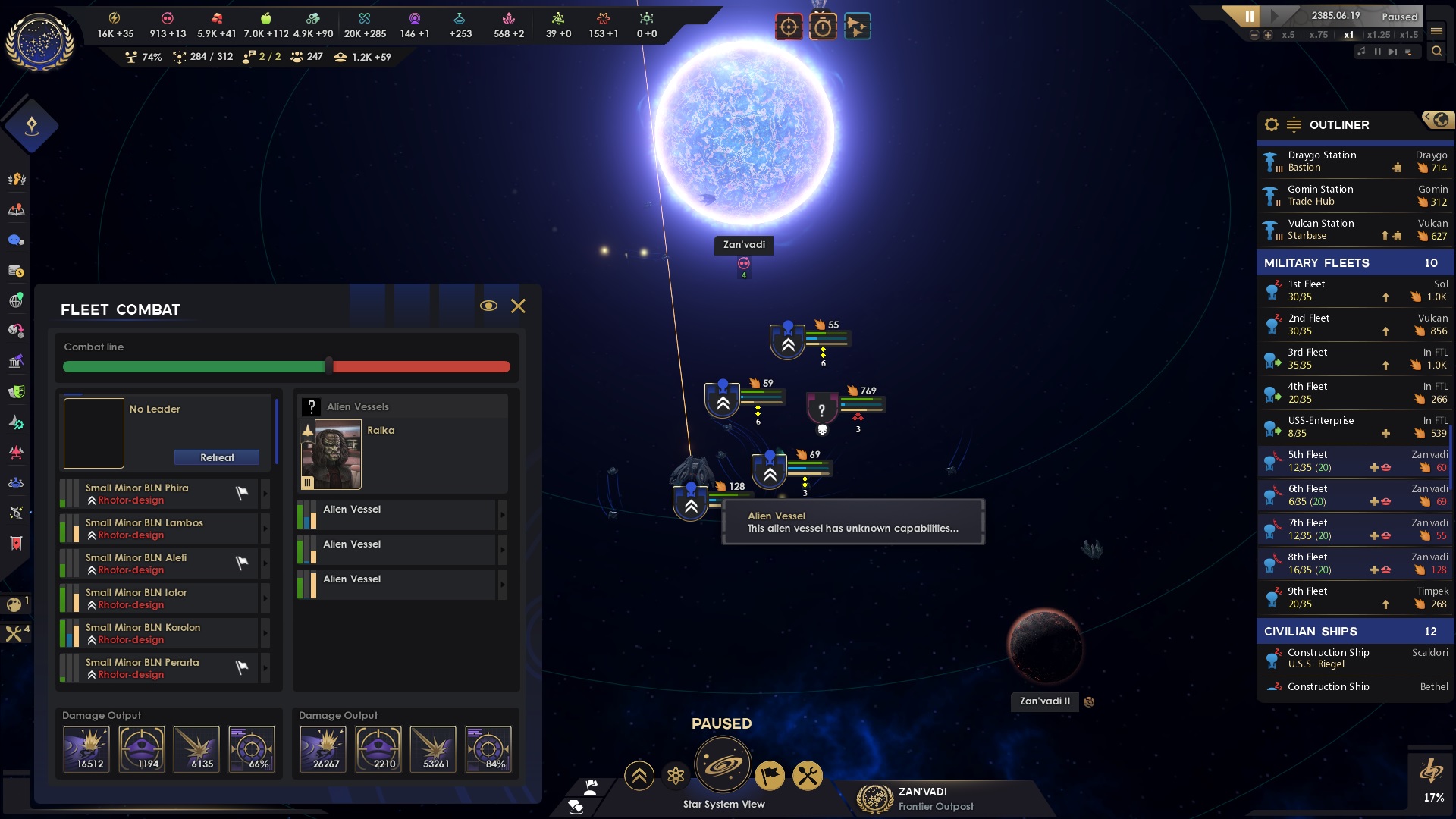
Star Trek: Infinite doesn't feature cutting-edge visuals, but given the zoomed-out approach, it really doesn't need to. The visuals are mostly fine, with decent-looking ships, star systems, and nebulae across the vastness of space that you'll explore. Static images are used for most species and worlds, and while there's definitely a bit more repetition here than I'd like, it's never so egregious as to be immersion breaking.
The soundtrack is a bit understated but still extensive, with a large number of tracks that fit the quiet mood you'll usually be in as you manage your empire. You can also directly select which tracks you'd like to hear on repeat, which is a nice touch.
It's also worth mentioning that the game has a very lengthy load time when you first boot it up, averaging around 50 seconds on a Samsung 850 SSD. After that loading however, subsequent loads to different save files only took a couple of seconds, so it's not an issue outside of when you first sit down to play.
Star Trek: Infinite — Accessibility and approachability
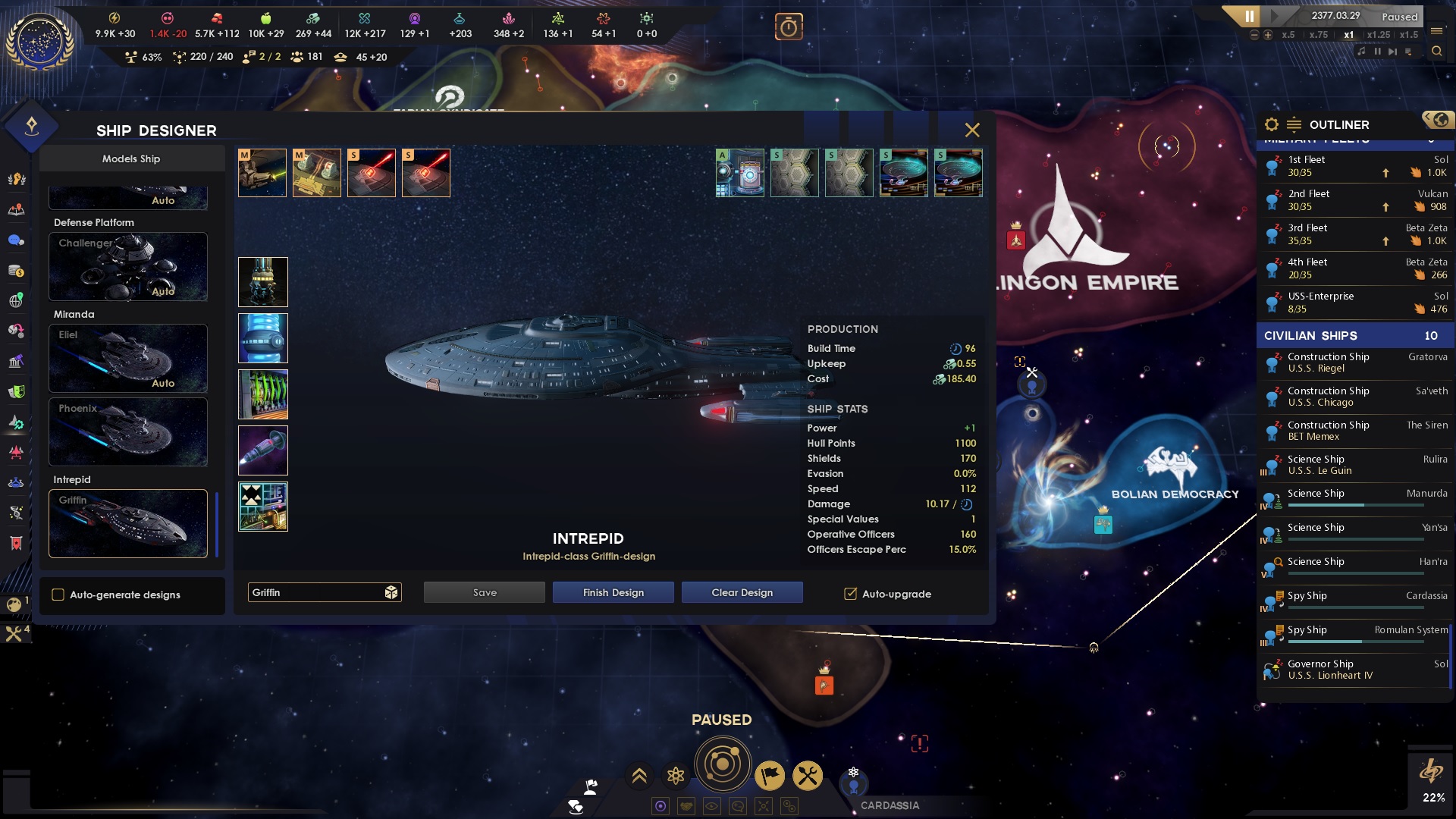
Star Trek: Infinite doesn't have a large number of accessibility options, but players can tweak their playthrough to make things easier, adjusting the difficulty, AI advisor, and game speed to make things more hectic or relaxing.
All of this combined with a simplified structure mean that it's fairly easy to learn and understand compared to something like Stellaris. This does come at the cost of not having as many gameplay options or mechanics to play around with, but DLC support could change that over time.
Similarities to Paradox's sister title Stellaris will abound, and rightfully so. The Star Trek IP isn't just used for set dressing here, though, and instead feels real and well-utilized. Ethical dilemmas and mysterious problems crop up from time to time and they feel like situations that would've appeared across the shows, especially The Next Generation.
Star Trek: Infinite — Should you buy?
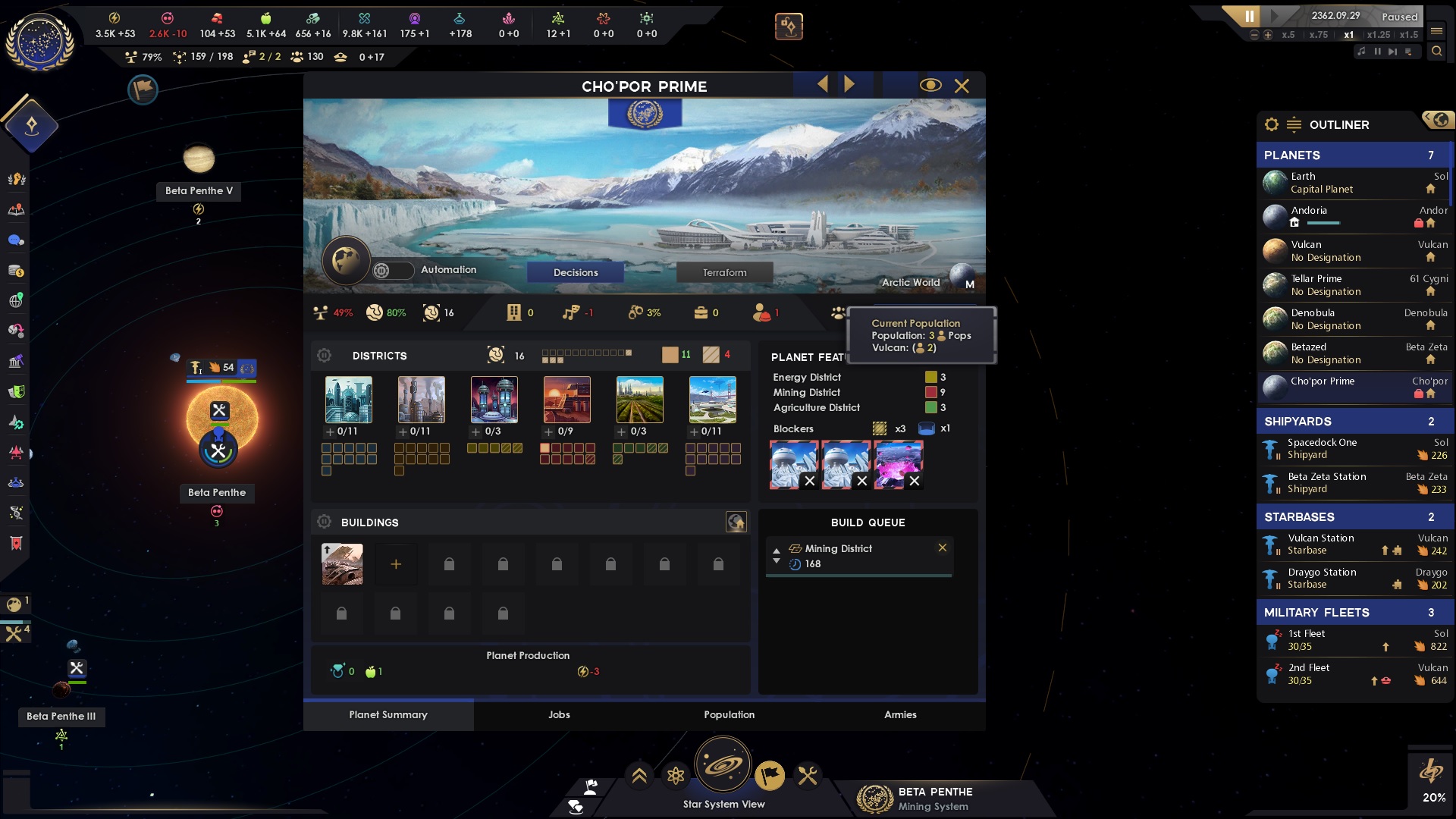
Overall, I do like playing Star Trek: Infinite, but that comes with a healthy number of asterisk marks. There's a lot that isn't explained to the point that it's hard to tell if an issue is actually a bug or not, while a large number of unambiguous issues weaken what is otherwise a decent strategy title.
Steadfast Trekkies will have fun, as will anyone looking for a watered-down, less-punishing entry point into grand strategy games. It's also aided by the low cost of entry, at less than half the price of most big games. Is it one of the best PC games for strategy fans? Perhaps not now, but I'm looking forward to seeing how Star Trek: Infinite evolves through future updates and mod support in the months ahead.
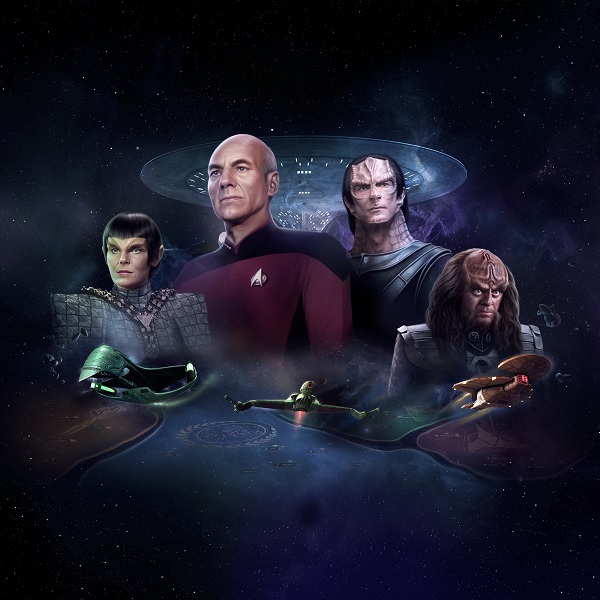
Star Trek: Infinite is an unfortunately buggy experience right now, but there's still fun to be had managing an empire as you acquire new worlds through combat or subterfuge.

Samuel Tolbert is a freelance writer covering gaming news, previews, reviews, interviews and different aspects of the gaming industry, specifically focusing on Xbox and PC gaming on Windows Central. You can find him on Twitter @SamuelTolbert.
